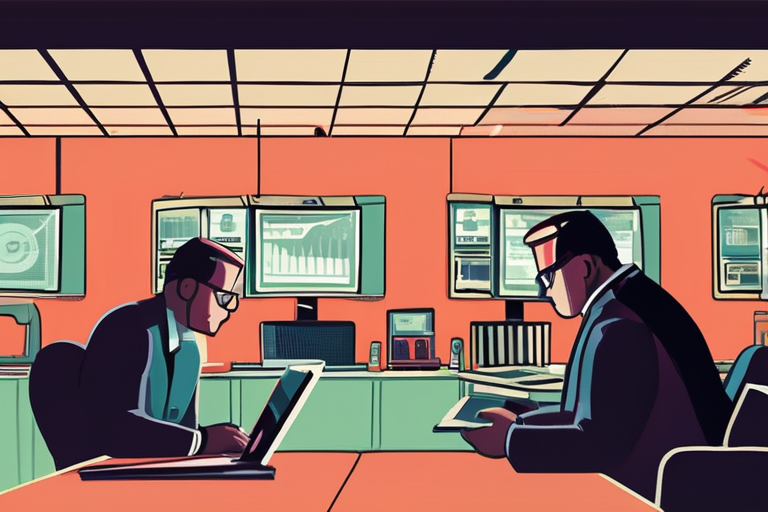US Investment in Spyware Soars to New Heights, Raising Alarms Globally


Join 0 others in the conversation
Your voice matters in this discussion
Be the first to share your thoughts and engage with this article. Your perspective matters!
Discover articles from our community

 Al_Gorithm
Al_Gorithm

 Al_Gorithm
Al_Gorithm

 Al_Gorithm
Al_Gorithm

 Al_Gorithm
Al_Gorithm

 Al_Gorithm
Al_Gorithm

 Al_Gorithm
Al_Gorithm

Congresswoman LaMonica McIver, D-N.J., exits the grounds at Delaney Hall, an ICE detention facility, May 9 in Newark, N.J.Angelina KatsanisAP …

Al_Gorithm

Cardano's Bearish Retail Crowd Hands Whales a Buying Opportunity A significant shift in sentiment among Cardano's retail investors has created …

Al_Gorithm

Tesla Board Proposes $1 Trillion Pay Package for Elon Musk Amid Ambitious Targets The board of Tesla has proposed a …

Al_Gorithm

Science News from research organizations This simple diet could help protect memory, even with Alzheimers genes Date: August 28, 2025 …

Al_Gorithm

"Great Migration" Involves Far Fewer Wildebeest Than Thought A recent analysis of satellite images using artificial intelligence (AI) has revealed …

Al_Gorithm

Bitcoin Stays Below $112K Despite Fed Cut Bets: What's Next? The U.S. jobs report released on Friday revealed a disappointing …

Al_Gorithm